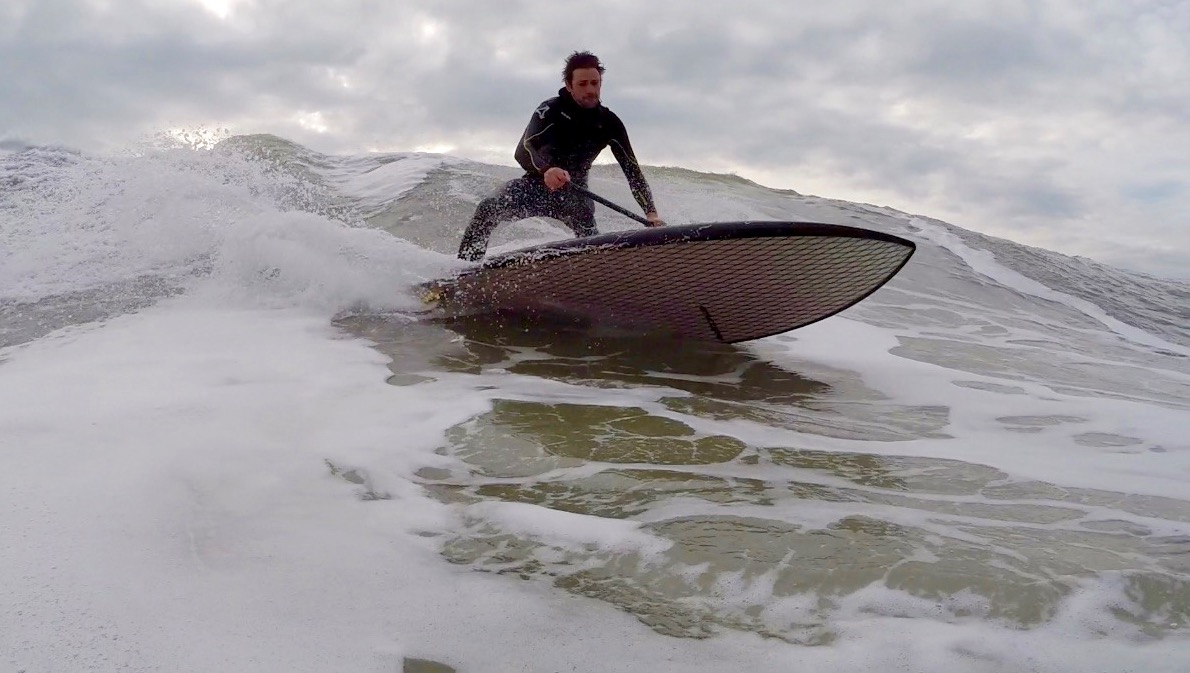
You may have heard the terms ‘production’ and ‘custom’ being chatted about in the carpark between paddlers before. Or maybe you haven’t…. well.
There are so many types of SUP boards on the market today. All different shapes, sizes, constructions, and prices. The most common type of boards are ‘production boards’ but there are also ‘custom boards’ out there too. At SUPboarder we have been asked several times, “Whats the difference between a production SUP and custom SUP?” and “What is best?!”?
There is obviously no simple answer to say which is best, they both have their pros and cons and their place in the market.
The SUPboarder team uses many SUPs across different brands and constructions and we thought it would be useful to explain the difference and highlight the issues worth considering when making a choice between production and custom boards. But please be aware that this is a general overview about production and custom kit, and we are aware that individual brands and custom shapers production and prices may vary.
So, lets start off by explaining the terms production and custom.
Production – When you hear the words production it is generally referring to a product that is made in a production line. Usually in a factory or controlled environment where more than one board of the same shape and construction is made at the same time. Some of the top named production brands in the world include JP Australia, Starboard, Naish, Fanatic, Hobie, Bote to name a few. And at present 99% of inflatable boards are production boards too. Most production boards are made in China or Thailand and shipped around the world.
Custom – This refers to a board that has either been hand shaped out of foam, or designed on computer and then the foam cut on a CNC machine and finished off by hand with glass, carbons and resins in a shaping bay. Generally these boards are one offs or at most, only a very few made. They have been designed by the surf shaper or the customer themselves to suit their own needs and colour ways. Custom shapers can be found all around the world but very much make surfboards/SUP for their local market. i.e.. not overseas.
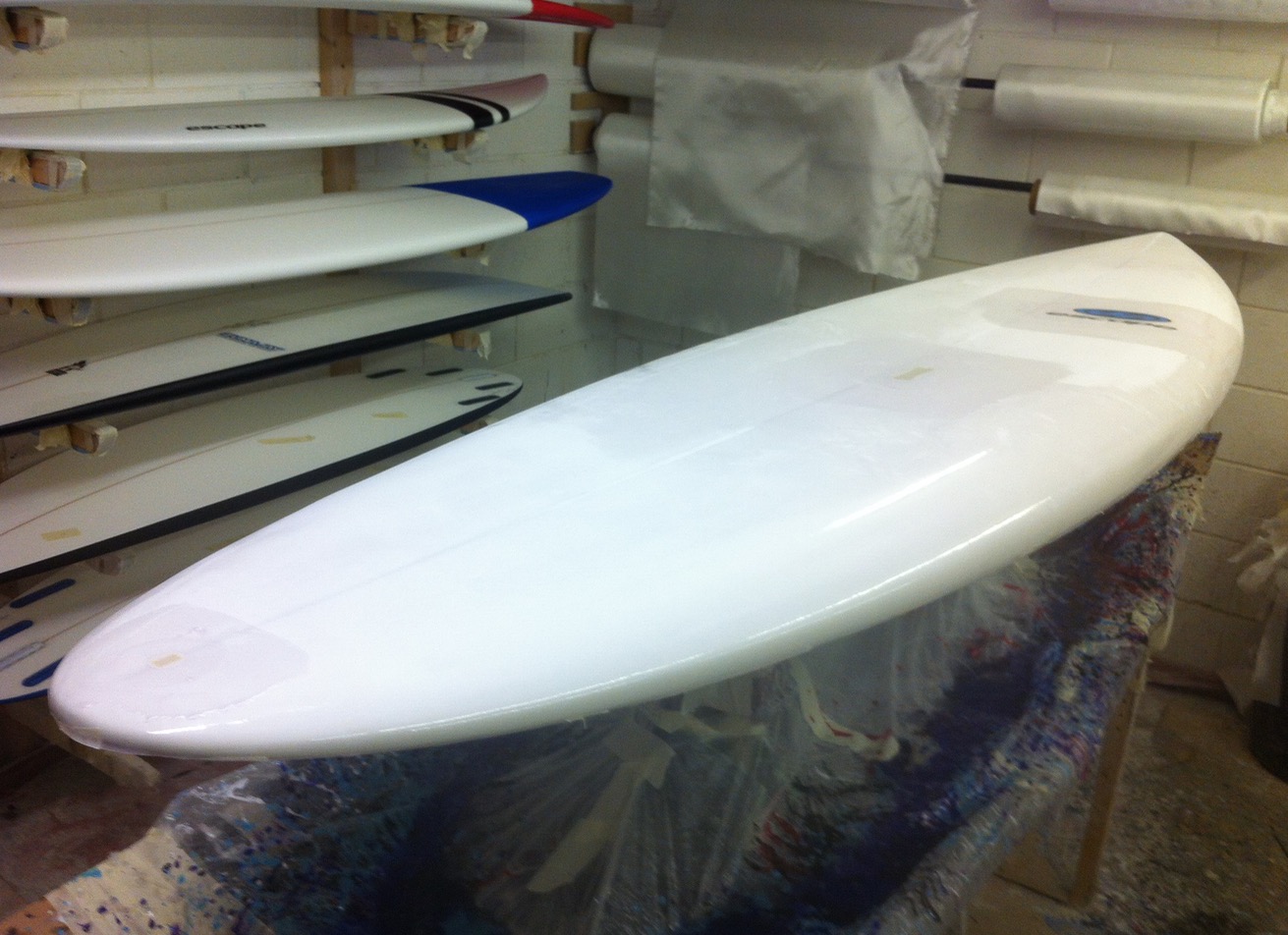
The factors you have to consider when buying and owning a production or custom SUP are;
What board shape do you want? Or more importantly, do you know what board shape you want?
What is the price difference between production and custom?
Resale
Market trends and lead times to getting a hold of a production or custom board
Life expectancy and durabilty
Performance
Making it your own
We will look at each deciding factor now in more detail.
What board shape do you want?
You may know or you may not. But this is probably the most important question you need to ask yourself, as it can be one of the biggest deciding factors on going for a production or custom board.
A production board company will have a large range of SUPs, which are most likely available to have a look at and try through shops and SUP schools. With a wide range of shapes and sizes you are more than likely to find one to suit your needs. If you’re unsure exactly which board in the range you want it’s always a good idea to demo a board first, do your research and talk to an expert about what you’re after. The SUPboarder equipment guide and reviews are a good place to start to find out more about what kit is available, who it’s best suited for, and what we think of it here at SB! Production brands push their equipment out into the market place through adverting, shops, pro riders and reviews, generally way more than a custom board brand ever would.
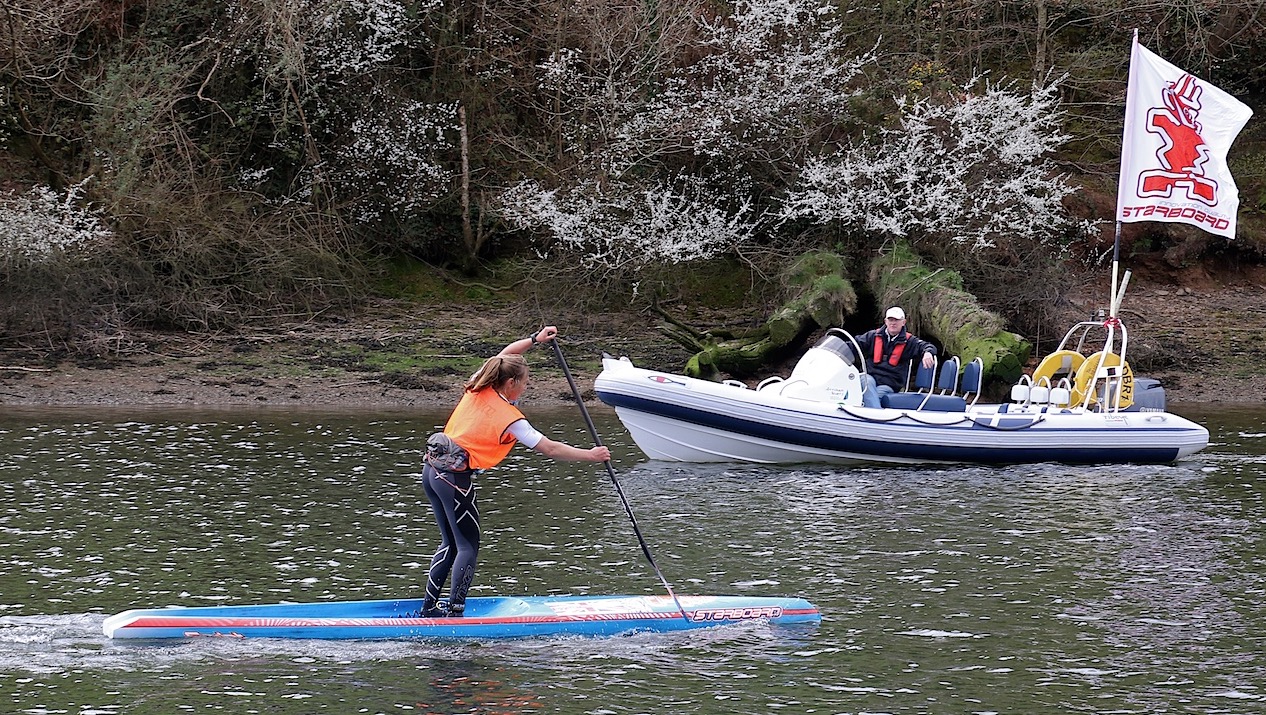
If you know more about the exact shape and sized board your after then you may decide to go down the Custom board route. Generally a SUPer would go to a custom board shaper with a certain board in mind. Or they may have demo’d one of the custom SUPs and then decided to have one made with a few alterations or with their choice of graphics. Either way, by going custom you have more choice and can have a board made exactly to suit your needs. Not always, but generally it is the more experienced SUPers who go for a custom board as they have the confidence to approach a shaper with their ideas. It’s obviously not something you want to get wrong! Custom surfboard shapers are generally very talented and have a vast amount of experienced regarding board shapes and riding styles. But please be aware that although many custom shapers know a lot about SUPs, and have been making them for a long time and are willing to help you shape your perfect board, there are still plenty of shapers out there that don’t do SUPs! You’ll soon find out when you ask them to shape a SUP. Just see what reaction you get!
Obviously, regardless of whether its custom or production, the most important thing is to do your research, find a respectable brand or shaper, and if possible demo some kit first before you hand over the money. Talking to other SUPers with the same or similar board is always a good move too.
Price difference between production and custom
This is a widely talked about when it comes to buying a board. These are the basic facts (but remember prices will vary in local areas).
Production Boards range in price from £800 – £2500.
Custom Boards range in price from £500 – £1500.
There are so many different constructions and ways of making a SUP which is why prices vary from board to board within a board range, let alone vary from brand to brand. A basic Epoxy white production SUP from a well known and established brand will cost you somewhere between £800 – £1000. The equivalent basic Epoxy glass SUP from a custom shaper would more likely be £500 – £800. So yes, on average a custom SUP is cheaper… but there are many other elements which can change the prices of both board types including – materials, build quality, colourways and how complex the design is to be made. All these factors can make custom board prices vary. For example, if you were looking at buying a 9ft all round shaped SUP from a custom shaper in a basic Epoxy glass construction, it might not be cheaper than a production board of the same size if you added, two extra colours, a large deck pad plus thruster (3 fins) and quad (4 fins) fin boxes and fins. It would probably be the same price or possibly even slightly more expensive than a basic production board with the same deck pad, colours and fins.
This is the hardest topic to nail down in one paragraph and prices between custom shapers do vary massively. But that’s why you have to do your research first and way up the costs for what you want.
Resale
When it comes to selling your SUP, there are some things that will make it easier to sell on the second hand market.
A good brand name – Selling a used SUP from a well known, respectable brand is far easier and you will always get more money for it. Why? Well because everybody already knows about it! They’ll know all about the board, what it cost new, what age it is (roughly) and therefore what it should be worth taking into consideration the condition its in. A production brand named SUP will nearly always hold its value more then a custom SUP.
Age of board – Unlike a production board, whose age and subsequent price tag can be determined from it’s graphics (which change from one year to the next), a custom board is unique and to a certain extent ageless, as it is not from a particular board season. Therefore it is more about the condition not the age of a custom board which will determine its resale value. So if you look after your kit this can be a good thing with a custom board. You’ve just got to find someone who wants your exact custom board!
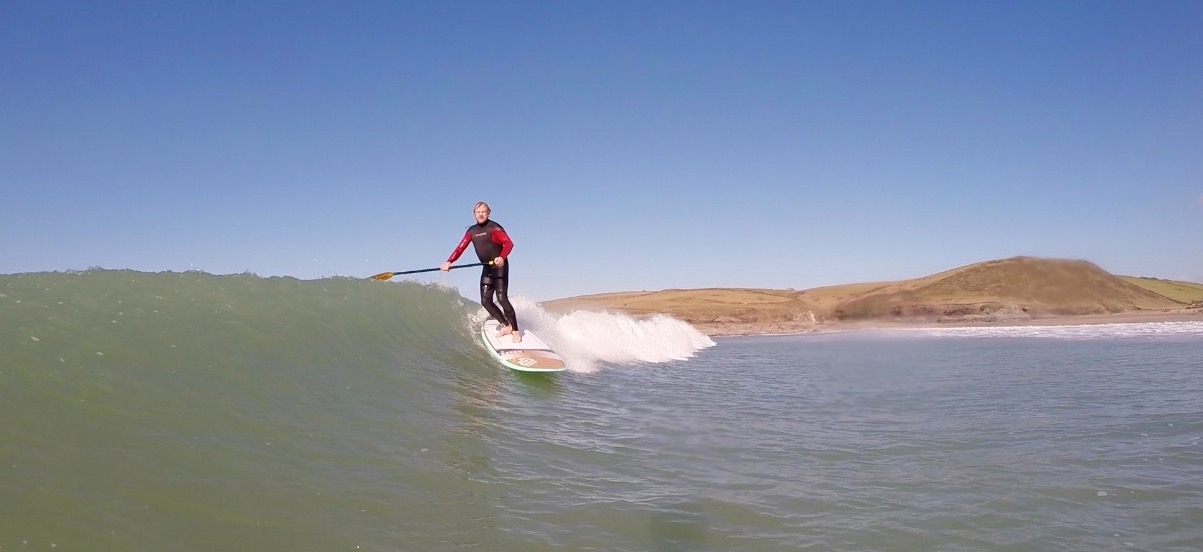
Market trends, lead times and availability
Market trends – This is about what boards are being made right now and what boards are going to be made next year. This year short, stubby nosed, surf SUPs are in, and from our reviews they have been working well so far. This is a classic market trend. Custom shapers can easily react to any market trend as they are making boards for the here and now.
Lead times – Whilst you’re reading this a production brand have already designed their next years board range, but you won’t be able to get your hands on it for another year! All production boards start their life as a custom one-off board. They’re then tested, tweaked, re-tested and tweaked some more before being put into production. On the other hand a custom shaper can usually have a board made for you in 3-6 weeks, reacting to trends and make what riders want way quicker than a production brand ever can.
Availability – This is all about how fast you can get hold of a board. If a shop has a board you want in stock, you can just go in and buy it. If they don’t have it, most shops can get hold of production boards from their local distributor within a week. But if you’re after a super small, full carbon, light weight, top end board then you might not be able to get your hands on it for up to 4 months! That’s because the distributor in your country doesn’t have it and therefore it has to be made for you in china, shipped to the distributor and then sent to your local shop. Whereas, if you knew what you wanted you could get it made by a custom shaper and on the water within a month (if you’re lucky!)
Life expectancy and durability
This is a really board specific thing. What is the board made of? How well has the board been made and what environment has it been made in? e.g a controlled factory environment.
Generally a production board will have a longer life on the water than a custom board. It will see more owners, catch more waves and win more races… hopefully! This is due to the manufacturing process and what has gone into the board. A basic epoxy board from a production brand will have a harder wearing gelcoat finish compared to most other basic epoxy glass custom finishes. Custom boards are very well made but due to the scale of production boards being made on a production line, there are different processes and finishes available to the production brands which 9 times out of 10 will make them harder wearing.
A custom shaper can make you a super strong carbon board that could well last for ever too, but it will cost you! And you’d need to take that into consideration if choosing between production or custom.
The real thing with a custom board is that if you had it made for you and you look after it, then there is no reason you would need to change it. So therefore a custom board could well be a board for life. Custom shapers can easily touch up or repair any of the damage you have done to your board because they know the board and know how they made it.
Performance
There are some amazing production boards out there for so many different disciplines and abilities. And the same can be said for custom shapes… even if they haven’t been made yet!
3 years ago we would have said that a high performance custom board shape would out perform a production performance shape easily! But in the last 2 years the construction and materials now used in production boards puts them up there with some of the worlds best custom shapes. A very personal thing but both board types are working well and we find it hard to choose between the two for that high performance market.
Making it your own
If you are after making your board feel very much your own, with its own shape, feel and colour ways, then you can’t go wrong with a custom board. That’s what they’re there for… to be custom, one offs, unique and something very much your own. You can be sure yours will be the only one on the water. The only thing you can do with a production board is change the fins around, and change the colour of your leash!
So there you have it. Lots of things to think about and look at when you are deciding between Production and Custom boards. As you can see its not all about money. There are so many other factors to consider. But the most important thing is getting the right board for you. And that’s something that we are very passionate about here at SUPboarder. We see too many people riding the wrong boards. Think about what you want to do with the board, how long you plan to keep your board, how good you are at looking after your board (!) and if you want to be different from the rest!
We hope you’ve found this article useful when considering ‘Production Vs Custom SUP’. All that’s left to do now is try lots of kit, talk to lots of SUPers and enjoy the ride.
If you have any comments about Production SUP Vs Custom SUP please leave them in the comments section below. We would love to hear what you guys think.
Words : Reuben Ellis


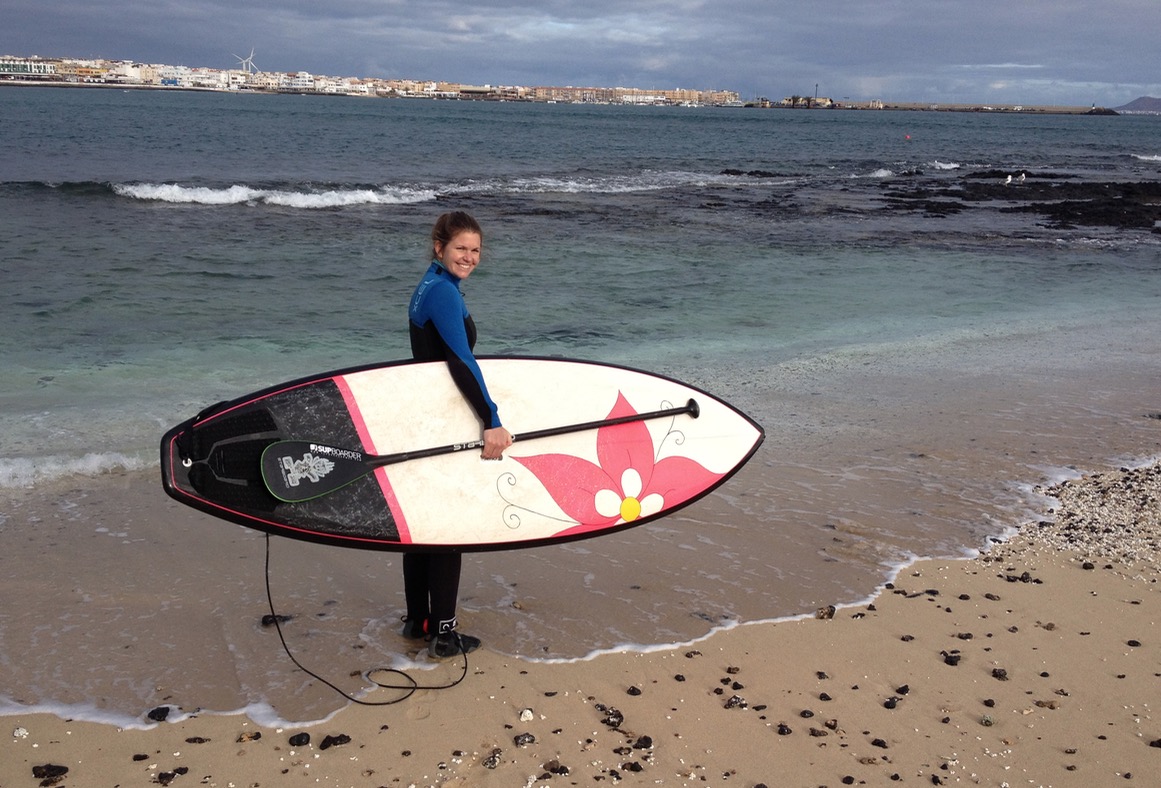
In my opinion, whilst custom is a viable choice for surf stuff (or even ocean racing), custom shapers are now going to have trouble competing with flat water boards from the main offerings. You can’t guess what a board needs exactly when in clean flat water based on intuition if you want to be cutting edge – it needs to be simulated using computational fluid dynamics software. Very few brands do that, let alone the custom guys.